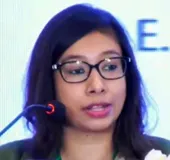
The outgoing caretaker government of Thailand hailed the Thailand-led informal meetings to engage Myanmar—joined by representatives of a few members of the Association of Southeast Asian Nations (ASEAN) and neighbouring countries, namely Laos, Cambodia, India, China, Brunei, and Vietnam, as well as Myanmar—
on 19 June as successful, amidst growing criticisms from several quarters. Only Thailand, Laos, and Myanmar had sent their Foreign Ministers for this meeting. The invitation sent from Thailand
read, “ASEAN should fully reengage with Myanmar at the leaders' level.” The Thai Foreign Ministry
statement read, “informal dialogue would not amount to a formal ASEAN meeting, the ministry said, but would help support ASEAN's efforts to end the violence in Myanmar.” The talks held in Pattaya were boycotted by significant regional countries such as Indonesia (the current ASEAN chair), Singapore, and Malaysia, leading to seeming divisions within the bloc.
Indonesia cited the lack of consensus among ASEAN members to engage with the regime leaders, while Singapore deemed it premature to engage with the junta at the summit level. The meeting received condemnation from Myanmar's parallel civilian government, the National Unity Government, and over 300 civil society organisations and regional lawmakers. They viewed it as a clear violation of ASEAN's consensus agreement to exclude junta representatives from high-level meetings.
The meeting received condemnation from Myanmar's parallel civilian government, the National Unity Government, and over 300 civil society organisations and regional lawmakers.
Thailand's decision to take the lead in organising these meetings signifies the caretaker government's intent not to rely solely on the incoming government (that may change the current military policy towards Myanmar and align it with countries that support democracy) and ASEAN to address Myanmar-related issues. Thailand's deputy prime minister and foreign minister, Don Pramudwinai, justified this choice by emphasising the belief that efforts to tackle the crisis within Myanmar
should be smooth, given they share one of the longest borders of around 2,416 km. The organisation of these talks aims to prioritise Thailand's best interests, particularly considering the direct impact of the issue on the borders, trade, refugee conditions, and overall business activities.
Thailand's bilateral approach towards Myanmar diverges from the position adopted by ASEAN. In
November 2021, Thailand's deputy prime minister and foreign minister publicly announced his visit to Myanmar, where he met with Min Aung Hlaing, the coup's leader. On 22 December 2022, Thailand took the initiative to arrange a meeting with representatives from mainland Southeast Asian countries, including Cambodia, Laos, Vietnam, and Myanmar. Another meeting involving stakeholders from Thailand and Myanmar
occurred in April 2023. Notably, both of these later meetings included the participation of ministers from Myanmar's military government, the State Administration Council (SAC). These engagements contradict the ASEAN Five Point Consensus (5PC), which ASEAN member states agreed upon in April 2021. These actions by Thailand reflect its interests, concerns, and historical approach to its mainland neighbours to sort its bilateral position.
Thailand’s rationale for engaging with Myanmar
Thailand considers itself the most impacted ASEAN member state regarding the situation in Myanmar. According to reports, Thailand hosts more than 20,000
displaced people and illegal migrants from Myanmar. Similar to other Southeast Asian nations, Thailand has not signed the 1951 Refugee Convention or its 1967 Protocol, which means it does not have provisions to recognise or protect refugees according to international standards legally.
Furthermore, Thailand heavily depends on importing oil and primarily gas from the Yadana field located in the Andaman Sea off the coast of Myanmar. Following the 2021 coup, Thailand's state-owned oil and gas company,
PTT Exploration and Production, actively acquired the investments Chevron and Total divested from Myanmar.
The caretaker government of Thailand’s decision to host the foreign minister of the Myanmarese ruling junta for an ‘informal regional peace talk’ not only drew criticism but is said to again bring to the fore the internal divisions within the ASEAN bloc.
Thailand's reliance on Myanmar extends
to the labour sector, with a significant dependence on both formal and informal workers from Myanmar in various industries, including agriculture and fisheries, construction and manufacturing, and the service sector. In 2021, Thailand stood as Myanmar's largest trading partner, and Thai businesses have a substantial presence in Myanmar, particularly in the food and beverage and pharmaceutical sectors.
However, since the 2021 coup in Myanmar, border trade between Myanmar and Thailand has significantly declined due to the junta's restrictions to prevent weapons from reaching resistance forces. According to Myanmar's Ministry of Commerce, under the military generals, border trade has decreased from over
US$4 billion in the 2019-2020 financial year to US$3.6 billion in the 2022-2023 financial year. Ongoing border conflicts frequently delay trade, while high taxes burden traders.
For nearly two years, Myanmar’s military generals have been barred from senior-level meetings of the ASEAN for not living up to the agreement to start talks with the ousted civilian government led by now-jailed Nobel laureate Aung San Suu Kyi. Therefore, the caretaker government of Thailand’s decision to host the foreign minister of the Myanmarese ruling junta for an ‘informal regional peace talk’ not only drew criticism but is said to again bring to the fore the internal divisions within the ASEAN bloc. Critics have
pointed out “it risks legitimising Myanmar’s military government and is inappropriate because it is outside the official ASEAN peace initiative, known as the five-point consensus.” But the question is, does it really present ASEAN as a fractured and divided organisation in this scenario? Even though most countries like Indonesia, Malaysia, and Singapore did not agree to participate in this gathering, the
reason cited for not doing so was the same. All these countries wanted to stick to the decision taken at the ASEAN meetings of not engaging with the top leaders of the junta until the conditions laid down by the ASEAN are met, like the junta open to engaging with the civilian opposition government, scaling down the ongoing violence, among others.
Problems with the 5PC
The lack of progress of the five-point consensus (5PC) signed in an emergency meeting held in Jakarta in April 2021, two months after the coup, has led many to say that
there is a need for the ASEAN to now look beyond the 5PC, but does that give Thailand (a fellow ASEAN member country) the pass for hosting these informal meetings and inviting the top officials like the Foreign Minister of the junta regime? This brings into question the unity and credibility of the ASEAN. Thitinan Pongsudhirak, professor of political science at Chulalongkorn University, has
pointed out, “By riding roughshod over Indonesia's leadership, Thailand is also undermining the ways that ASEAN works and the role of its chair.” Regardless of the fact (stated in the previous section) that Thailand appears to be the most affected country by the ongoing crises in Myanmar, given that Thailand itself is on the cusp of undergoing a change in government, with the new government (if it comes to power) having stated that they will be
committed to the ASEAN’s 5PC, this move to engage with the military junta in Myanmar seems like a desperate attempt by the caretaker government to try and earn one last feather in its cap. Scholars like Zachary Abuza at the National War College in Washington, D.C., have stated, “Thailand’s caretaker government seems determined to continue advancing the political and economic interests of the Thai military and royalist elites.”
Countries like Indonesia and Singapore will hardly ever endorse such meetings because ASEAN forms the main nucleus of their foreign policy outlooks.
This year’s ASEAN chair, Indonesia,
already has a lot on its plate, like the ASEAN community-building project, tensions in the South China Sea, the impacts of the Russia-Ukraine war, the growing United States-China rivalry, promoting the ASEAN Outlook on the Indo-Pacific, and the planned accession of Timor Leste as ASEAN’s 11th member this year. But according to
statements from the Indonesia Foreign Ministry, it is still “undertaking efforts with the office of the ASEAN special envoy to Myanmar to achieve an inclusive dialogue with all parties in the conflict.” While it cannot be denied that the ASEAN mechanisms like the 5PC and the various summits and meetings about the Myanmar crisis have not come out with any substantive progress, it also does not seem plausible for individual member countries to organise such informal meetings by completely side-tracking the ASEAN platform.
Countries like Indonesia and Singapore will hardly ever endorse such meetings because ASEAN forms the main nucleus of their foreign policy outlooks. If not all ASEAN countries are on board with such arrangements, that again raises a finger on the whole notion of unity within the ASEAN. At a time when ASEAN centrality is being championed in the debates centring on the evolving dynamics of the Indo-Pacific, and there are constant efforts by countries like Indonesia and Singapore to ensure that the ASEAN remains relevant amidst the mushrooming of the many mini-laterals and plurilaterals in the region, these ‘informal secretive meetings’ will only feed into the ongoing narrative of the ‘fading of the ASEAN unity’.
Critics of the ASEAN 5PC have said that
alternate plans and drastic measures should be taken, like suspending Myanmar’s membership in the ASEAN or letting the United Nations deal with this issue. These measures seem overly severe, but if the ASEAN wants to implement any of these, the decision needs to be taken following the ASEAN way and the platform of the ASEAN itself to ensure the credibility of the ‘ASEAN centrality’ principle.
Sreeparna Banerjee is a Junior Fellow with the Strategic Studies Programme at the Observer Research Foundation.
Premesha Saha is a Fellow with the Strategic Studies Programme at the Observer Research Foundation.
The views expressed above belong to the author(s). ORF research and analyses now available on Telegram! Click here to access our curated content — blogs, longforms and interviews.



 The outgoing caretaker government of Thailand hailed the Thailand-led informal meetings to engage Myanmar—joined by representatives of a few members of the Association of Southeast Asian Nations (ASEAN) and neighbouring countries, namely Laos, Cambodia, India, China, Brunei, and Vietnam, as well as Myanmar—
The outgoing caretaker government of Thailand hailed the Thailand-led informal meetings to engage Myanmar—joined by representatives of a few members of the Association of Southeast Asian Nations (ASEAN) and neighbouring countries, namely Laos, Cambodia, India, China, Brunei, and Vietnam, as well as Myanmar— PREV
PREV



